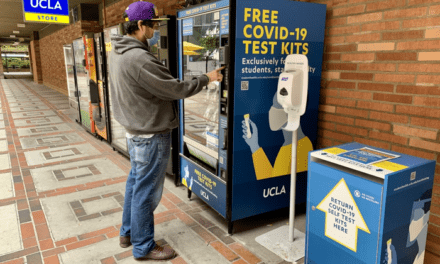Mammoth Biosciences, Brisbane, Calif, has secured a subcontract with MRIGlobal, the prime contractor with the Defense Advanced Research Projects Agency (DARPA), to develop CRISPR-based diagnostics and biosurveillance technologies for the US Department of Defense (DOD). Mammoth’s co-founder and CTO Janice Chen, PhD, will lead the team as a co-principal investigator alongside Richard Winegar, PhD and Julie Lucas, PhD from MRIGlobal for the “Detect It with Gene Editing Technologies” (DIGET) program.
“The DIGET program aims to create scalable and rapidly adaptable CRISPR-based diagnostics platforms to protect against future pandemics and biological national security threats,” says Chen. “The covid-19 pandemic has exposed the lack of rapid and affordable diagnostics and CRISPR is poised to address that unmet need.”
The contract goals are to develop two devices: a handheld, disposable point-of-need (PON) device capable of detecting 10 pathogens at once, as well as a lab-based massively multiplexed detection (MMD) platform capable of screening clinical and environmental samples for more than 1,000 targets simultaneously. Mammoth Biosciences will be the primary subcontractor to MRIGlobal for the PON device and will contribute to the MMD platform along with additional partners.
“This partnership builds on the exciting work Mammoth has done to pioneer the field of CRISPR-based diagnostics,” says Mammoth’s CEO and co-founder Trevor Martin, PhD. “Working with these expert partners will further accelerate this important and transformative effort.”
Having already accelerated the development of a SARS-CoV-2 test for hand-held disposable and high throughput formats, Mammoth is poised to swiftly begin work on the DIGET program. Since its founding three years ago, the company has built its DETECTR platform as a scalable and rapidly adaptable solution to detect new and emerging pathogens, having the potential to save lives and ensure national security.
Under the DIGET program, MRIGlobal received an initial award for $12.7M with a total potential contract value of up to $36.7M over a four-year period. Other partners of the program include Draper, IDbyDNA, University of California, San Francisco (UCSF), and Toolbox Medical Innovations.
For more information on Mammoth’s CRISPR-based diagnostics platform and technologies, visit Mammoth Biosciences.





